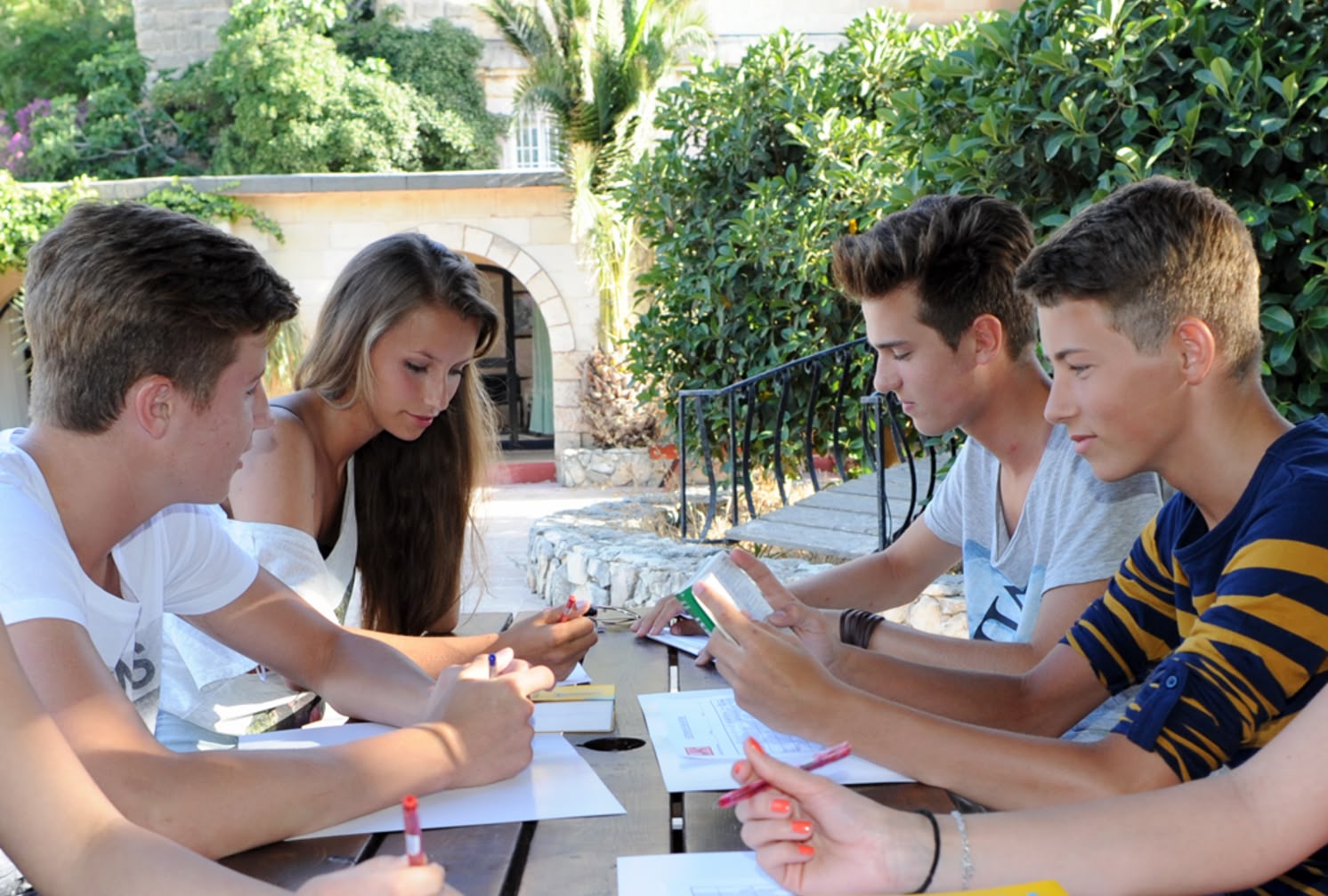
Definitely one of the most beautiful English language schools in Malta.
About the English school »Discover all there is to know about the future perfect tense! What signal words are present, how is it formed, and what events does it describe? With the help of example sentences and exercises, we go over everything you need to know about the future perfect tense.
Together with us, expand your understanding of English grammar and the Future Perfect Tense. The Future Perfect Tense will soon be a part of your own texts and conversations.
Essentially, the Future Perfect Tense is created by joining the Partzip Perfect of the main verb with the auxiliary verb will or, in some cases, shall in Future Simple tense. Examine the following rule for forming the future perfect to gain a better understanding:
Subject + wil/shall + have + Participle Perfect of the main verb.
Simply insert the word "not" between the auxiliary verb and the participle perfect of the main clause to create the Future Perfect tense negatively. Here is an illustration of how the future perfect tense can be misused negatively: "I won't have finished my homework by tomorrow. See the table below for additional future perfect tense sentence examples.
| They will have been married for 20 years next month. |
| She will have eaten breakfast by the time we arrive. |
| They will have finished building the new hospital by next year.. |
| We will have traveled to every continent by the time we retire. |
| She will have earned her PhD by the time she turns 30. |
When discussing events that will have already been completed at a specific point in the future, the future perfect tense is used. The future perfect tense emphasizes the action's completion and places particular emphasis on the fact that the action or state in question has already been completed before a later state in the future.
The Future Perfect tense must also be used to express assumptions or forecasts about the past that are based on current events. The Future Perfect Progressive Tense is another name for this unique variation of the Future Perfect Tense.
This appears to be rather complex at first. If you look more closely at the sentences in the examples below and create a few of your own in the future perfect tense, it will become clearer.
| Example sentences |
|---|
| By next summer, I will have graduated from University. |
| By the time you arrive, we will have already finished dinner. |
| He will have completed his project by the time the deadline arrives. |
| By the time I arrive at the party, everyone will have already left. |
| We will have known each other for a decade next year. |
| He will have retired from his job by the time he turns 60. |
| By the time you wake up tomorrow, I will have already left for work (action) will be completed by the time in the future (waking up next morning). |
There are also a few signal words for the future perfect tense that indicate that you have to use the future perfect tense. Take a look at the following list of signal words for the future perfect tense to help you recognise when you need to use it.
| Signalwords | |
|---|---|
| By | I will have finished my project by tomorrow. |
| Before | He will have finished his homework before he goes to bed. |
| Until | She will have been living in this city until she moves to Europe. |

Definitely one of the most beautiful English language schools in Malta.
About the English school »
English courses for adults (Business English also available).
About English courses »
Supervised English programme for kids between the ages of 14 and 21.
English classes for kids »